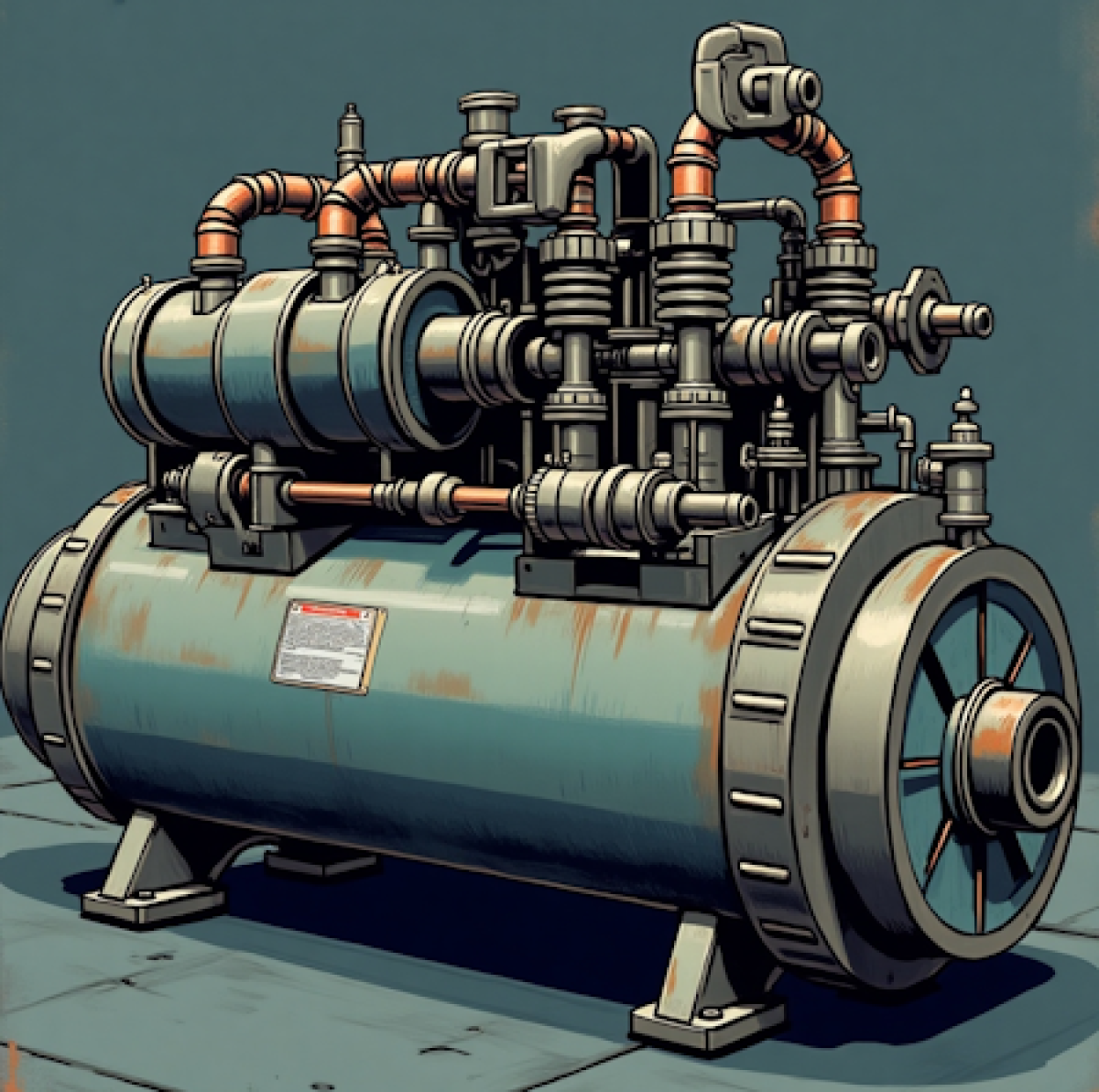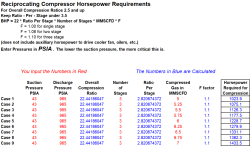Reciprocating Compressor Horsepower Requirements

Description
Input the suction pressure, discharge pressure, # of stages, and compressed gas in MMSCFD to calculate horsepower required for compression.
This calculation determines the brake horsepower (BHP) required to operate a reciprocating compressor based on compression thermodynamics and gas flow requirements.
The fundamental principle at work here is the relationship between:
- Compression ratio (pressure increase)
- Number of compression stages
- Gas flow volume
- Energy required to compress the gas
In simple terms, the sheet calculates how much power (horsepower) is needed to compress a specific amount of gas from one pressure to another, taking into account that breaking the compression into multiple stages is more efficient than doing it all at once.
Key Insights
- Multi-stage approach: The calculation recognizes that for high overall compression ratios (above 2.5), it's more efficient to divide the compression into stages, keeping each stage's compression ratio below 3.5.
- Stage efficiency: The "F factor" accounts for the fact that multi-stage compression with intercooling between stages is more efficient than single-stage, but there are also diminishing returns (1.00 → 1.08 → 1.10 as stages increase).
- Linear relationship: The horsepower required increases linearly with gas flow (MMSCFD - million standard cubic feet per day), as shown in the cases where only the gas flow changes and everything else remains constant.
- Practical application: This calculation would help engineers properly size compressor motors and evaluate energy consumption for different operating scenarios.
The calculation uses a simplified equation that encapsulates these thermodynamic principles without requiring complex calculations of polytropic compression, heat transfer, and other detailed parameters that would be part of a more comprehensive analysis.
Calculation Preview
Full download access to any calculation is available to users with a paid or awarded subscription (XLC Pro).
Subscriptions are free to contributors to the site, alternatively they can be purchased.
Click here for information on subscriptions.

